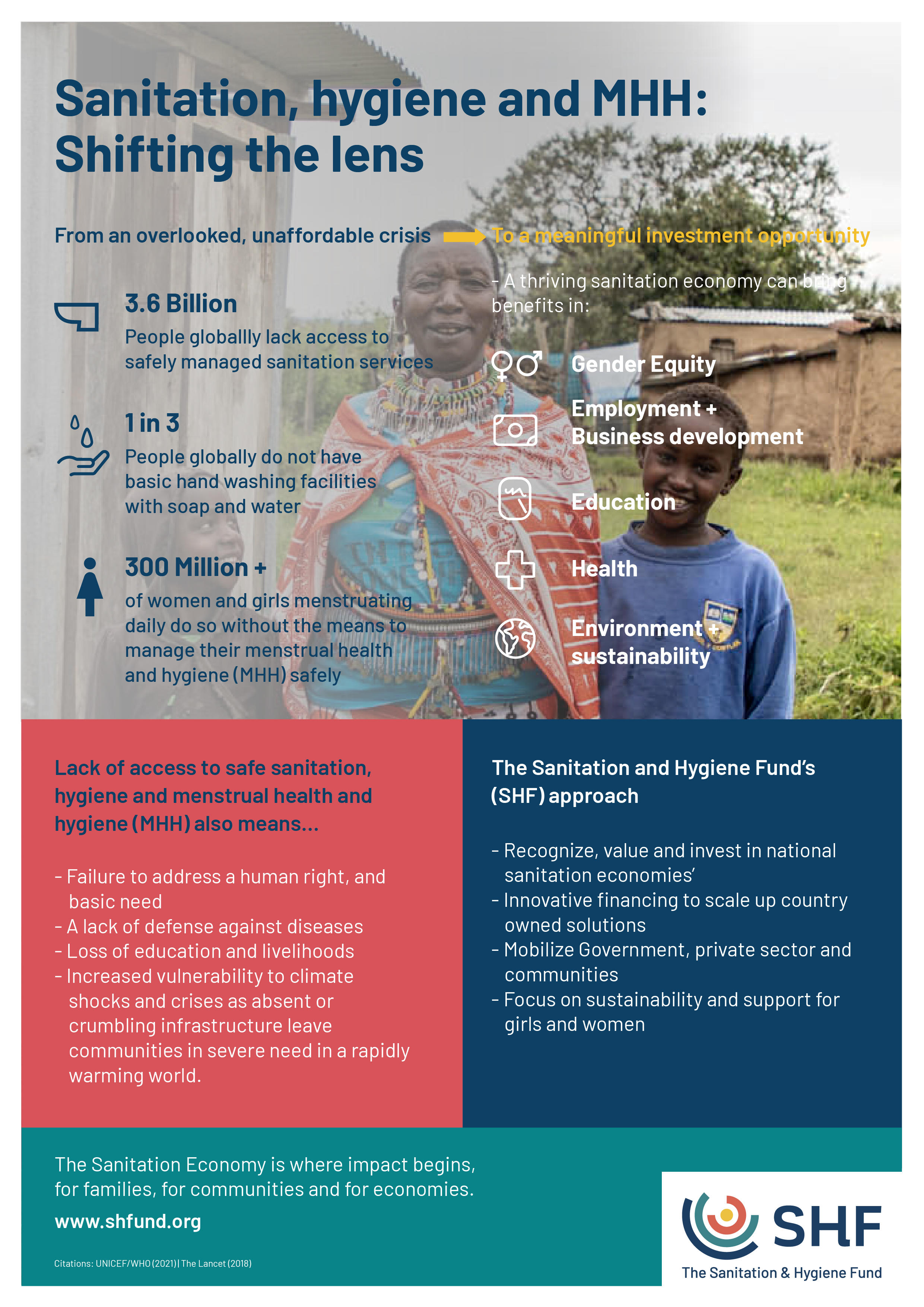Our Work /
Sanitation and Hygiene Globally
Across the world, global sanitation and hygiene numbers demonstrate the inequalities and at times injustices, millions of people, including children, live with every day.
On any given day, around 300 million women and girls menstruate1 but often do not have the means to manage their menstrual health and hygiene (MHH) safely.
The human cost of not having access to these basic services impacts peoples’ physical and psychological health, education, employment and social participation.2 Certain groups of people feel this more severely because they are systematically denied opportunities and resources that are available to other members of the community due to gender, disabilities, socioeconomic constraints etc. This can be both a factor and a result of their exclusion from social, economic, cultural and political life due to who they are, where they live or what they believe.
This situation is unacceptable and must change. Through attention to equality and nondiscrimination, we can ensure sanitation and hygiene opportunities for all. We can ensure that people everywhere are assured not just their human rights but also their human needs, leaving no-one behind.

